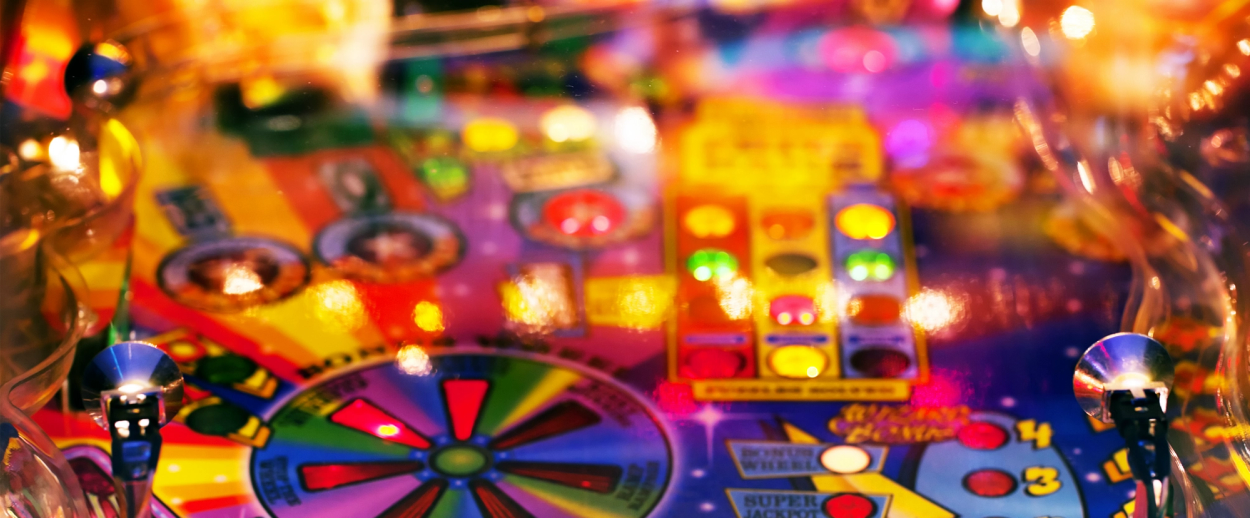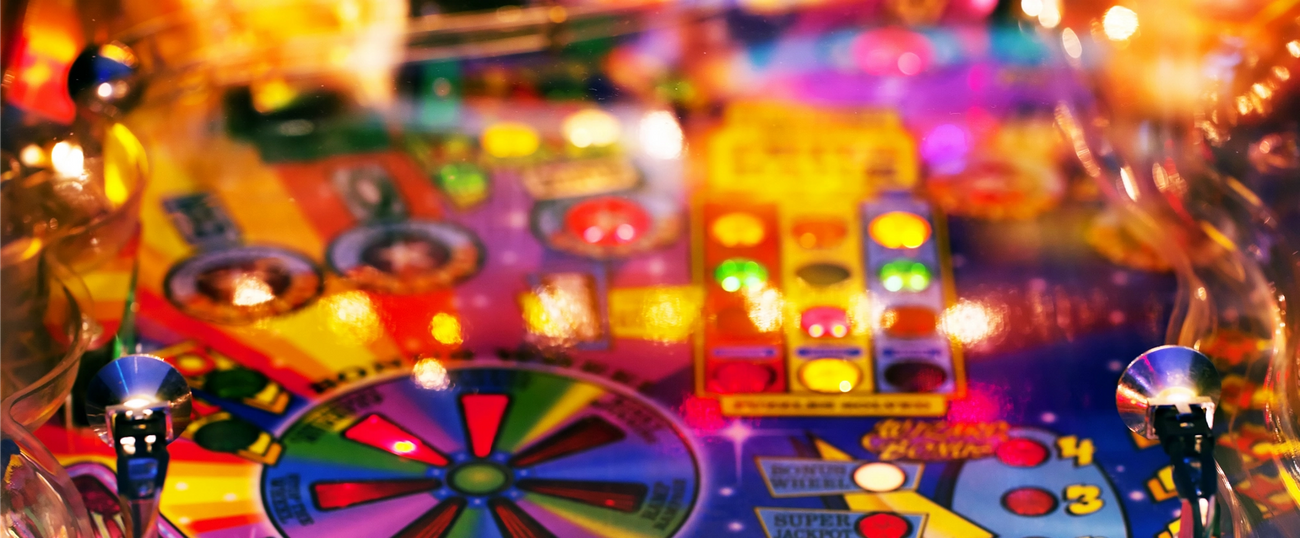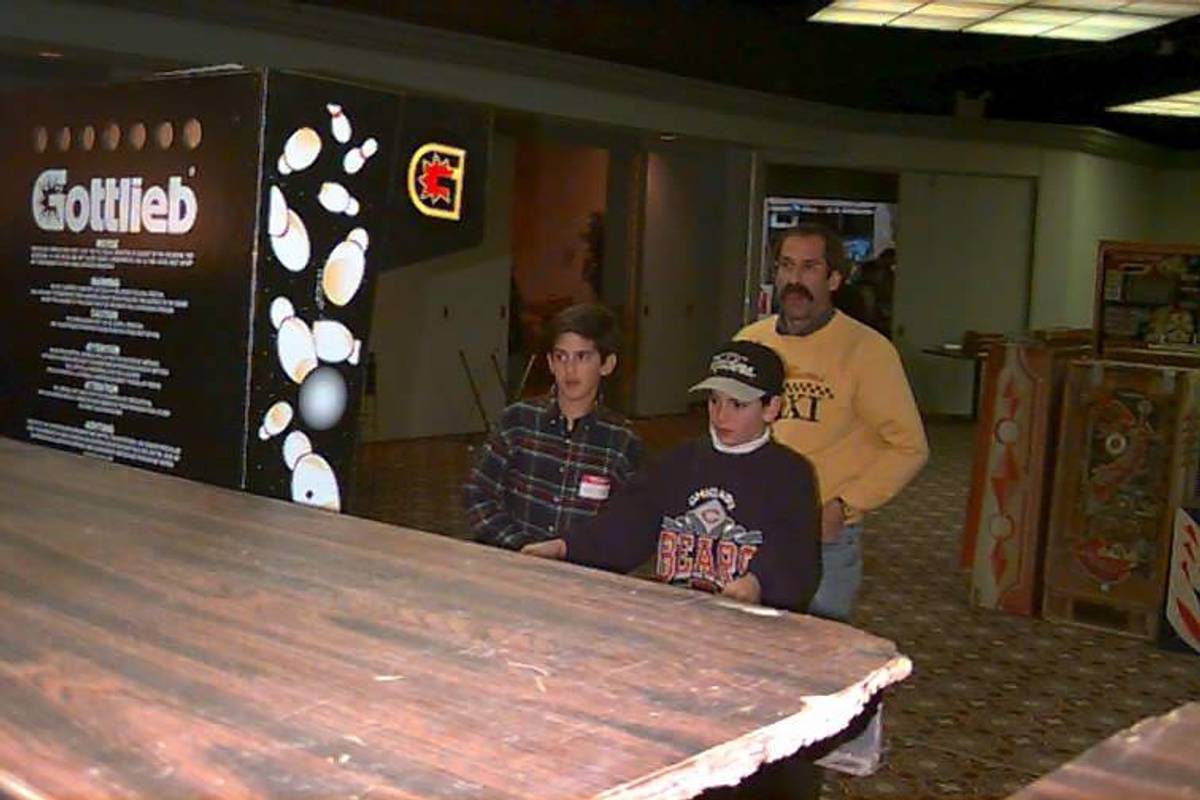Meet the Sharpes, Pinball’s Royal Jewish Family
Josh and Zach Sharpe are two of the top players on the professional pinball circuit today. Their father, Roger, paved the path for them.




Josh and Zach Sharpe’s parents used to tuck them into bed each night by the soothing glow of pinball machines in each of their rooms. Plus, there were two more machines in the dining room, eight in the living room, and another dozen in the basement of their suburban Chicago home. “My poor mom,” Josh recalled about their dad’s pinball collection.
That beginning, with the coolest night lights a kid could dream of, is a big part of why Josh, now 36, and Zach, 34, are among the top competitive pinball players in the world. Zach, who plays as ZAC, is currently the No. 4-ranked player in the International Flipper Pinball Association; Josh, or JLS, pings in at No. 15.

Almost everyone in competitive pinball knows the names of these Jewish brothers, and not just for their finesse with the silver ball. In 2005, they created the first international player rankings in the game, reaching out to the world’s top players and spending months hunting down past results to build their system. A year later, they resurrected a dormant organization, the International Flipper Pinball Association, starting with 500 players and 50 competitions worldwide.
Now, IFPA boasts 43,980 members internationally who flip, bob, cheer, and sometimes curse their way through some 2,800 competitions every year. The growth of the competitive gaming league has shocked even the Sharpes, who believe membership in the IFPA could reach 100,000 one day. “It’s already surpassed where I thought it would ever get to,”Josh said, “and the growth isn’t slowing down.”
At tournaments, machines are set in competition mode—faster play, often with no possibilities for extra balls—and serious players know it’s a physical activity. They nudge the machine to prevent the ball from plummeting down a side drain, or gently cradle that silver sphere on a flipper before blasting it upwards for a jillion more points.
Josh’s first big tournament win came in Minnesota in 2005, with a field that included 12 of the top 25 players in the world. That gave him an initial boost of confidence, eventually leading to wins in Illinois, Pennsylvania, Texas, and other state competitions, and stellar play at world meets.
Zach’s turning points included his first World Championship as an adult in 2005, when he made it into the finals against three of the top players in the world, including two world champions. He won last year at ReplayFX, what he calls “the largest pinball tournament on the planet.” One side benefit is the prize money, though Zach says it’s not a big motivator for him. “I can be competing for $5 in the basement of someone’s house, or for $10,000 on a stage in Pittsburgh,” he said. “It’s always the same level of fun, but it’s a little more fun when you win.”
Josh and Zach’s father, Roger Sharpe, is widely credited with saving the game in the U.S. By the mid-1970’s, some cities and towns had banned pinball as gambling. Roger, then an editor at GQ magazine and top player, proved them wrong when he played in front of the New York City Council as part of a hearing about the ban in 1976. Industry lobbyists had recruited him to demonstrate that playing pinball well actually required talent (along with a little luck). His performance ended the ban in New York and, eventually, elsewhere in the U.S.
Though Roger took his sons to pinball expos, where grateful fans occasionally asked for his autograph, he was reluctant to let his kids vie in junior competitions, wanting them to focus instead on the pure love of the game. After “I don’t know how many years of us begging,” Zach said, Roger finally caved in. At age 12, Zach finished in second place at his first World Championship competition for juniors. Josh, then 14, placed fourth. The pair won or dominated every juniors competition they entered thereafter. Though both played sports as teens, Josh says nothing quite touched the thrill of a pinball win and investing time “in that world under glass.”
Pinball once lost ground to video games, but that time is past. Today, twenty-three countries host IFPA competitions, and another 15 nations, including Malta, have at least one player in the rankings. The pinball capital of the world? Portland. “It’s a very hipstery game these days,” Josh said.
He has already introduced son Colin, 4, and daughter Charlotte, 2, to the joys of this retro way to socialize. The newest generation of the dynasty can’t fully appreciate yet they are part of pinball royalty. Their grandparents are immortalized in pinball art—on the rare 1985 Cyclopes machine, designed by Grandpa Roger, with only 400 made. (Roger, Josh, and Zach each own one; Zach keeps his in his dining room.) Grandma Ellen is half naked in the drawing, “so it’s kind of embarrassing,” Zach conceded with a laugh. Still, for street cred in the world of pinball, it’s hard to beat.
Andrea Cooper is a writer based in North Carolina. She has written for Time, Salon.com, Utne Reader, Pacific Standard, National Geographic Traveler, and Vogue, and has contributed to NPR’s All Things Considered.